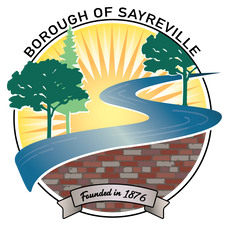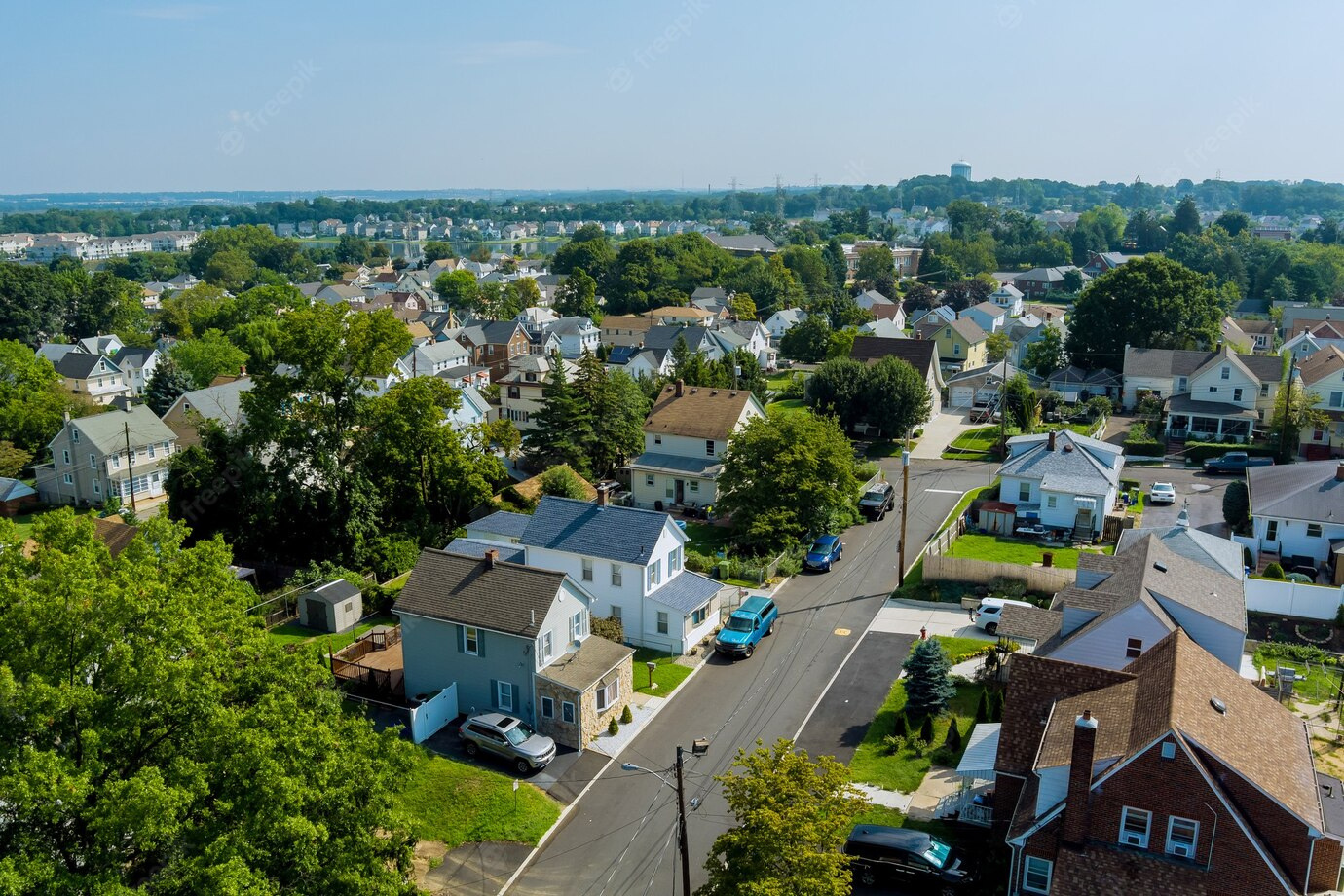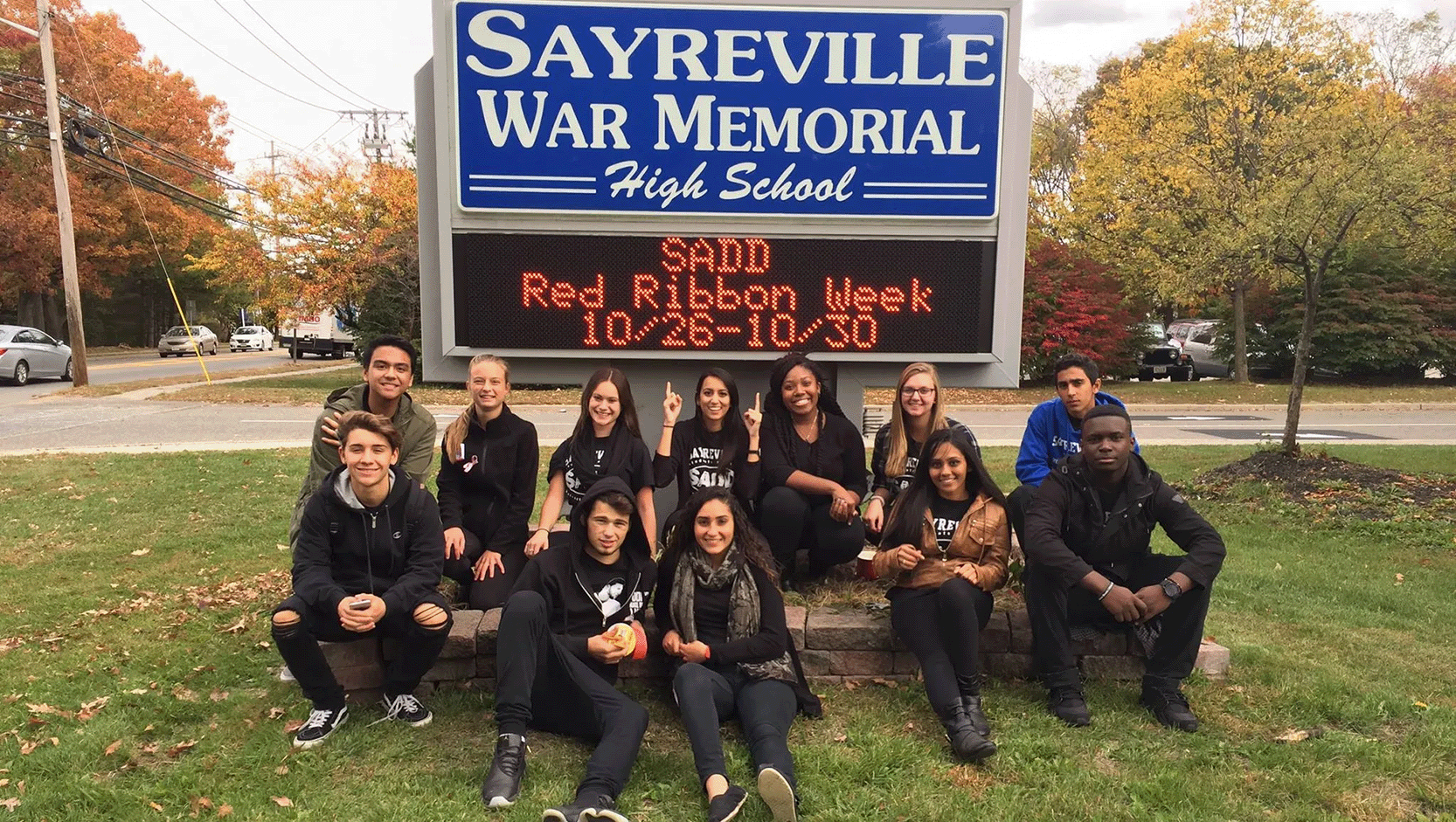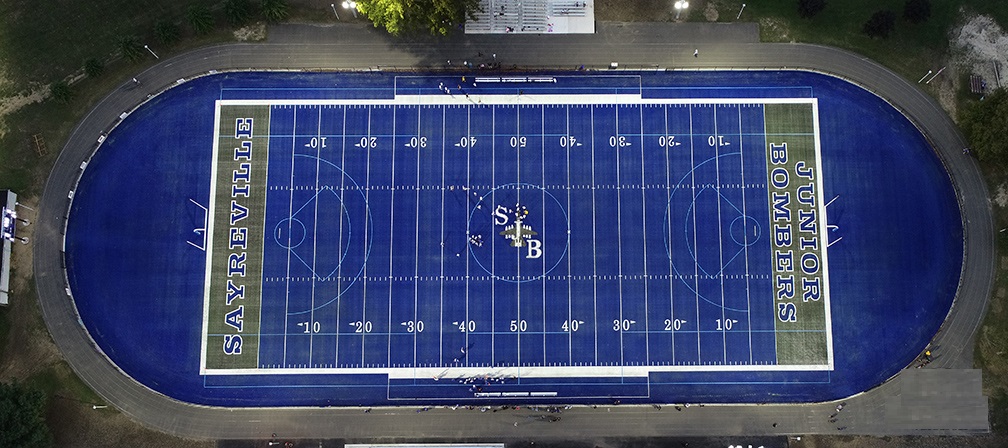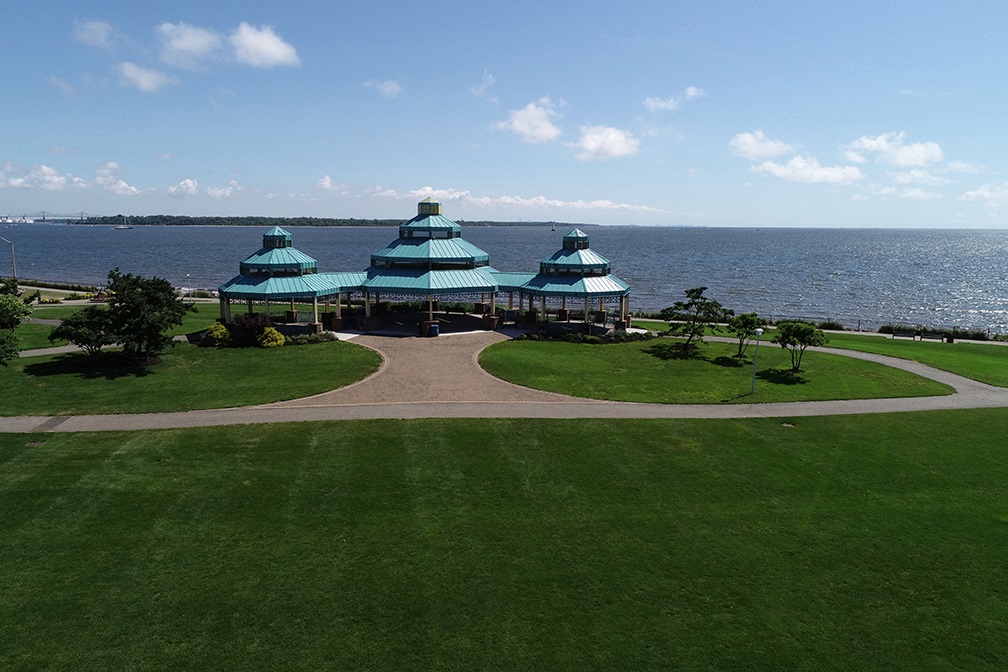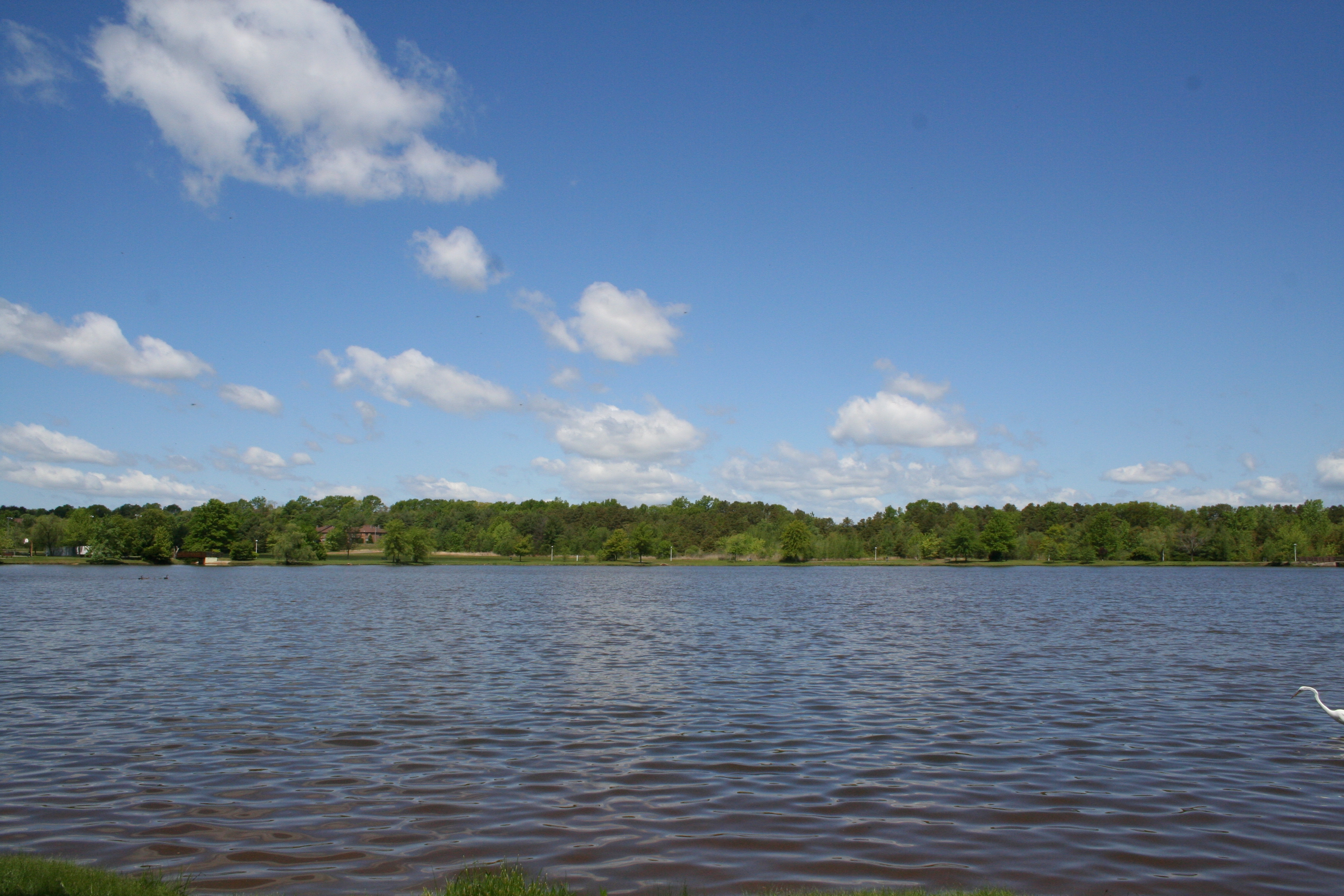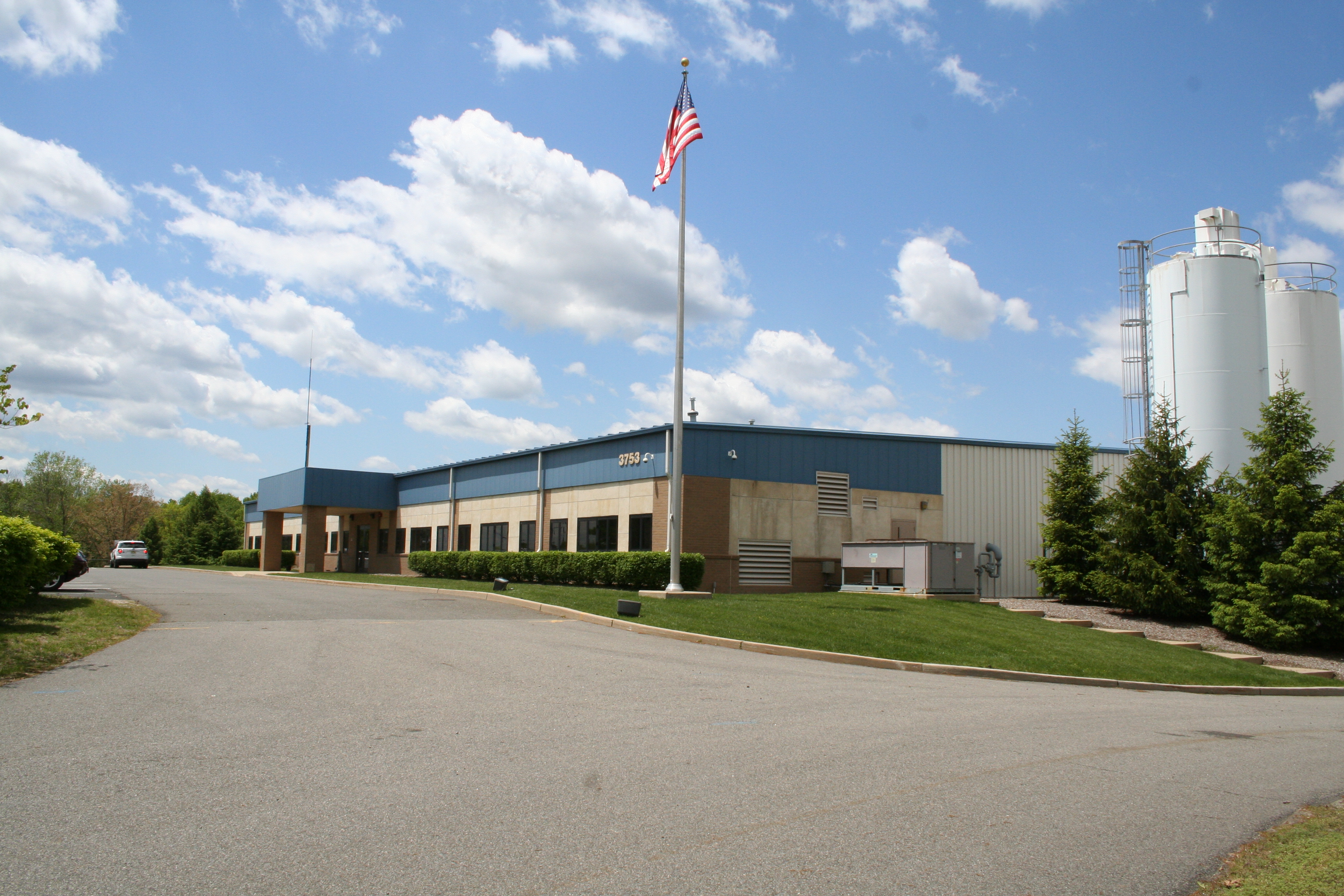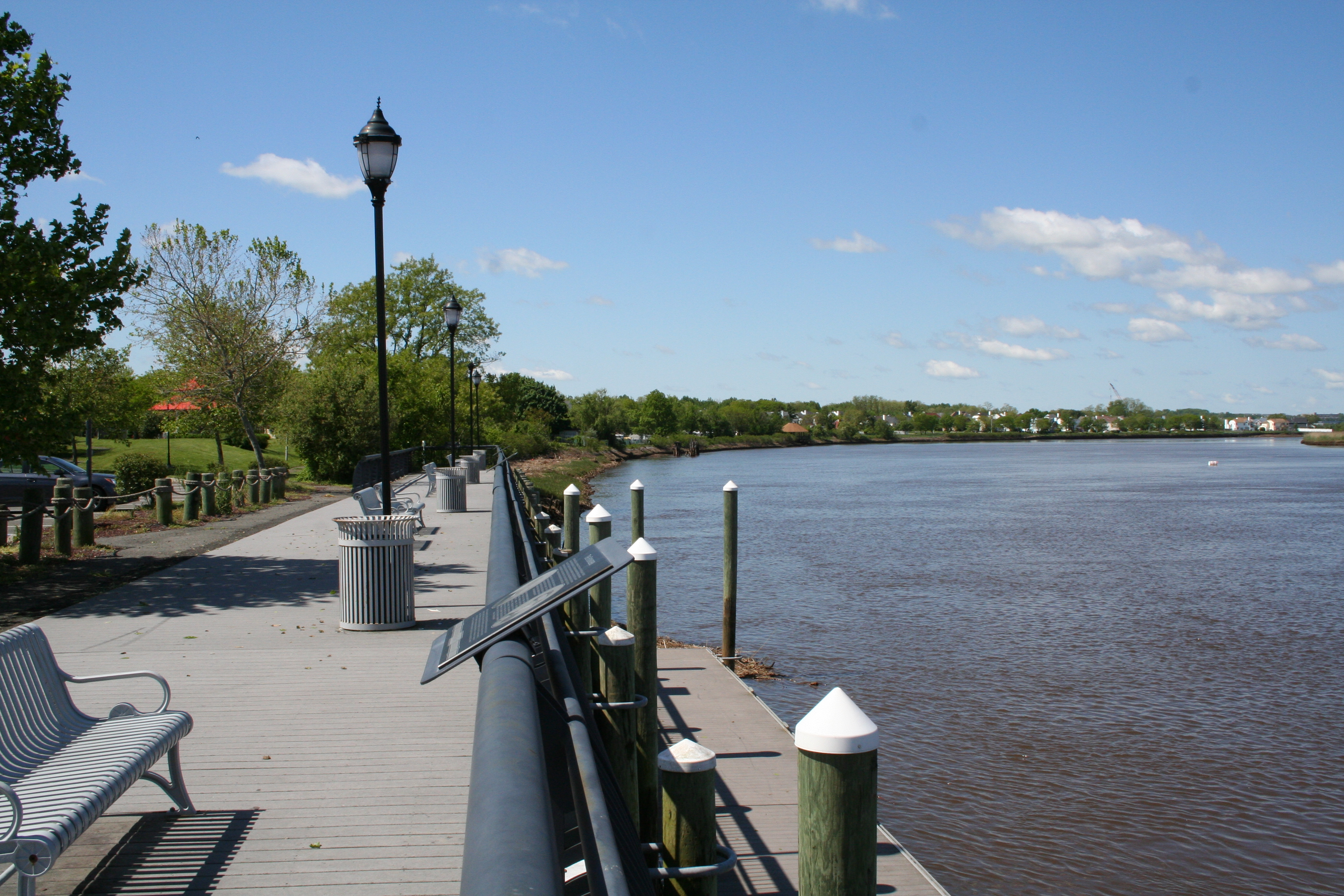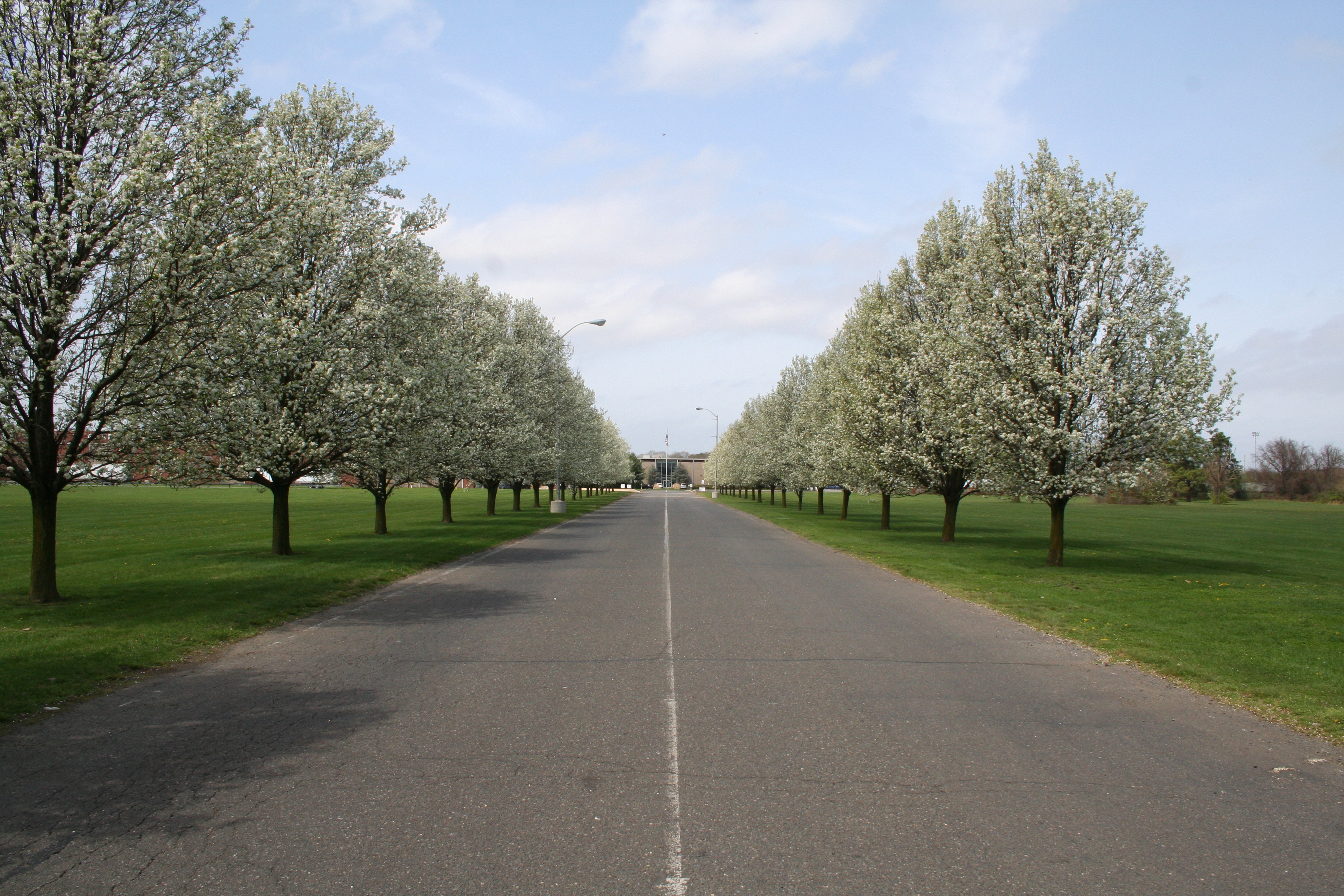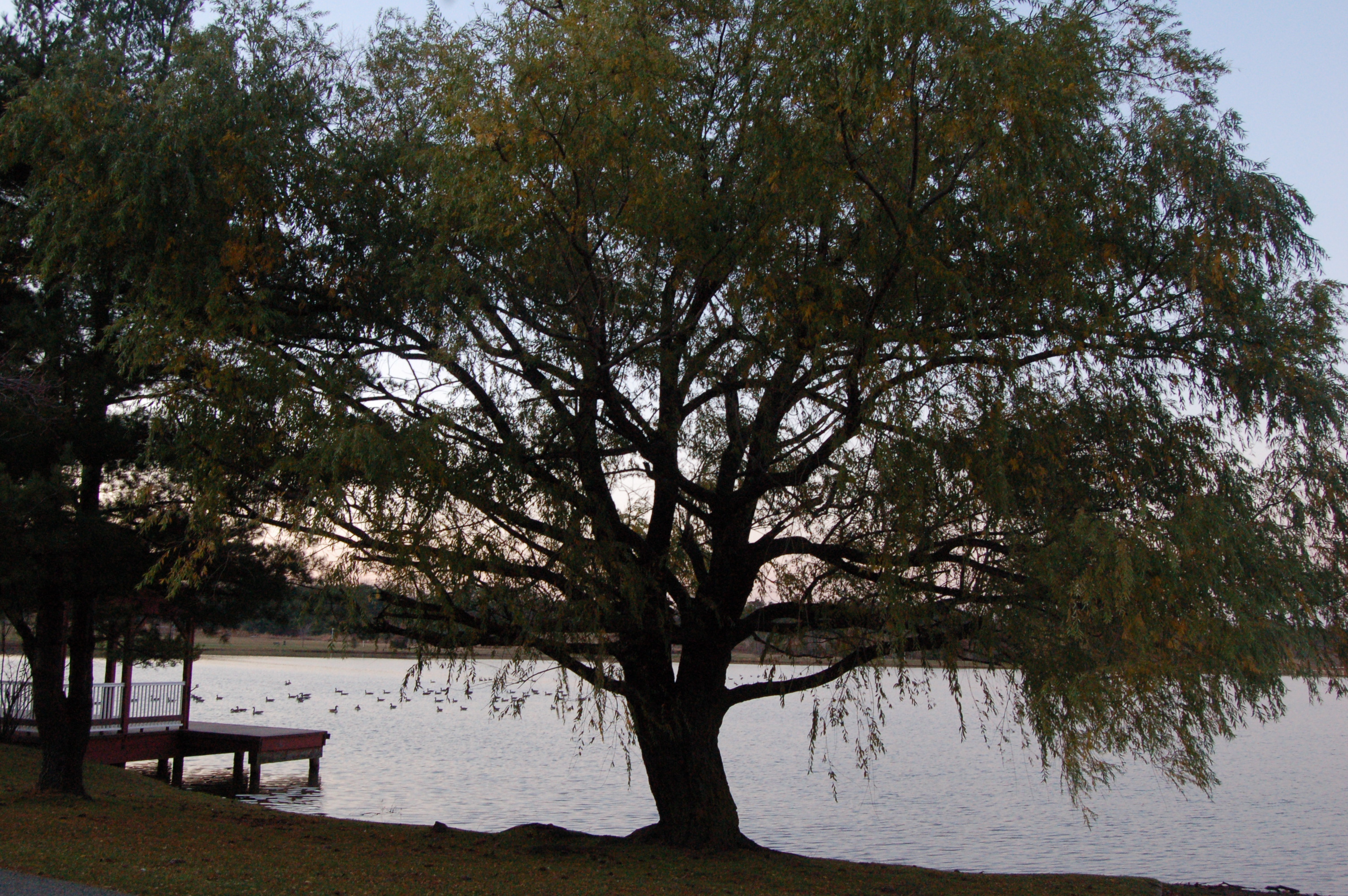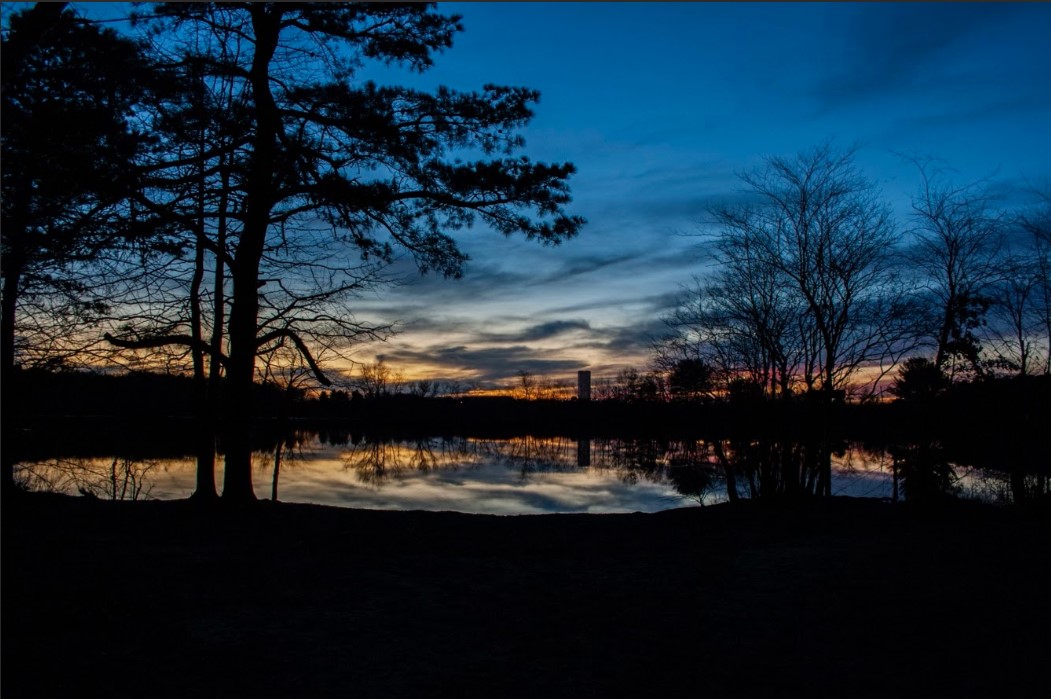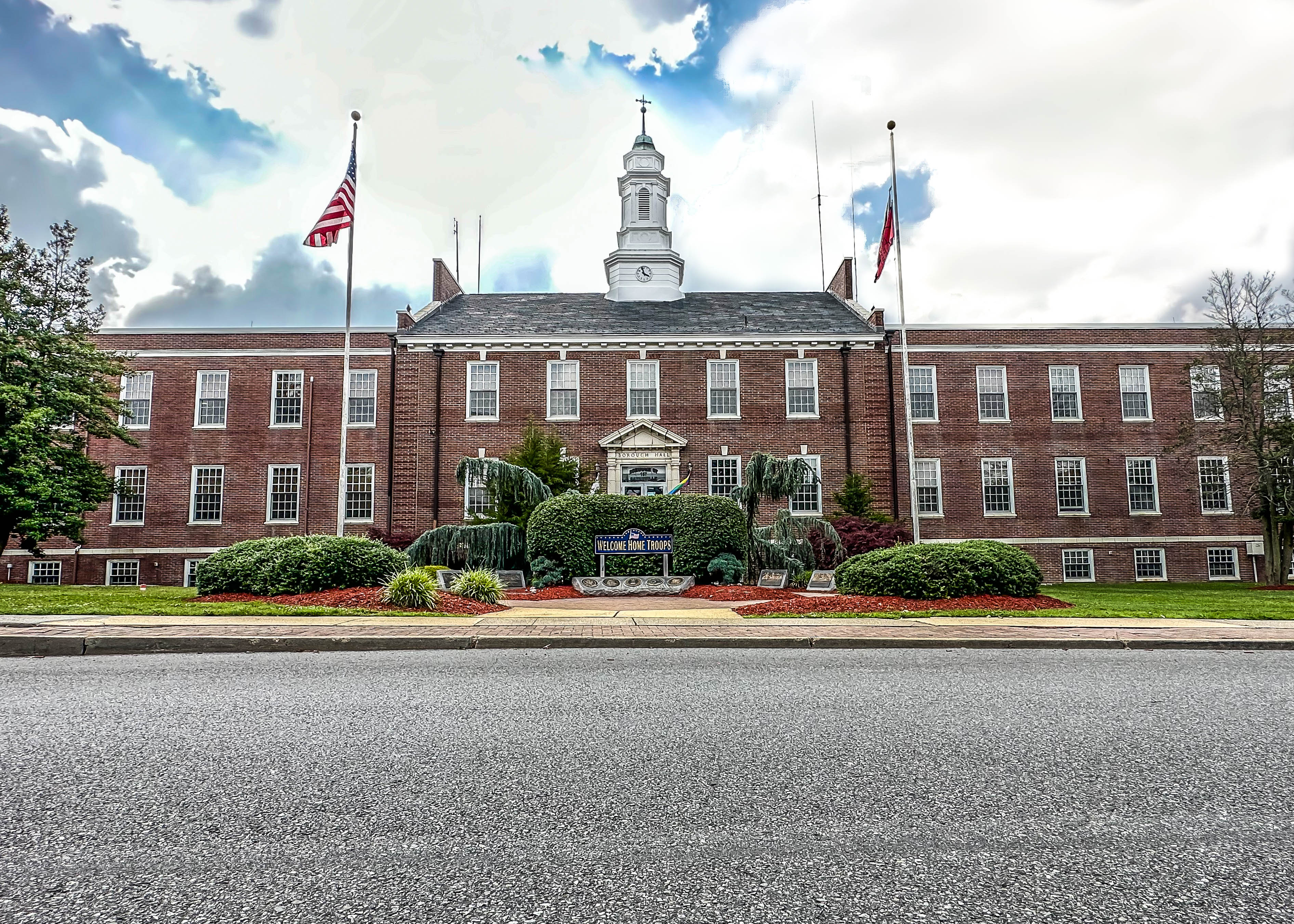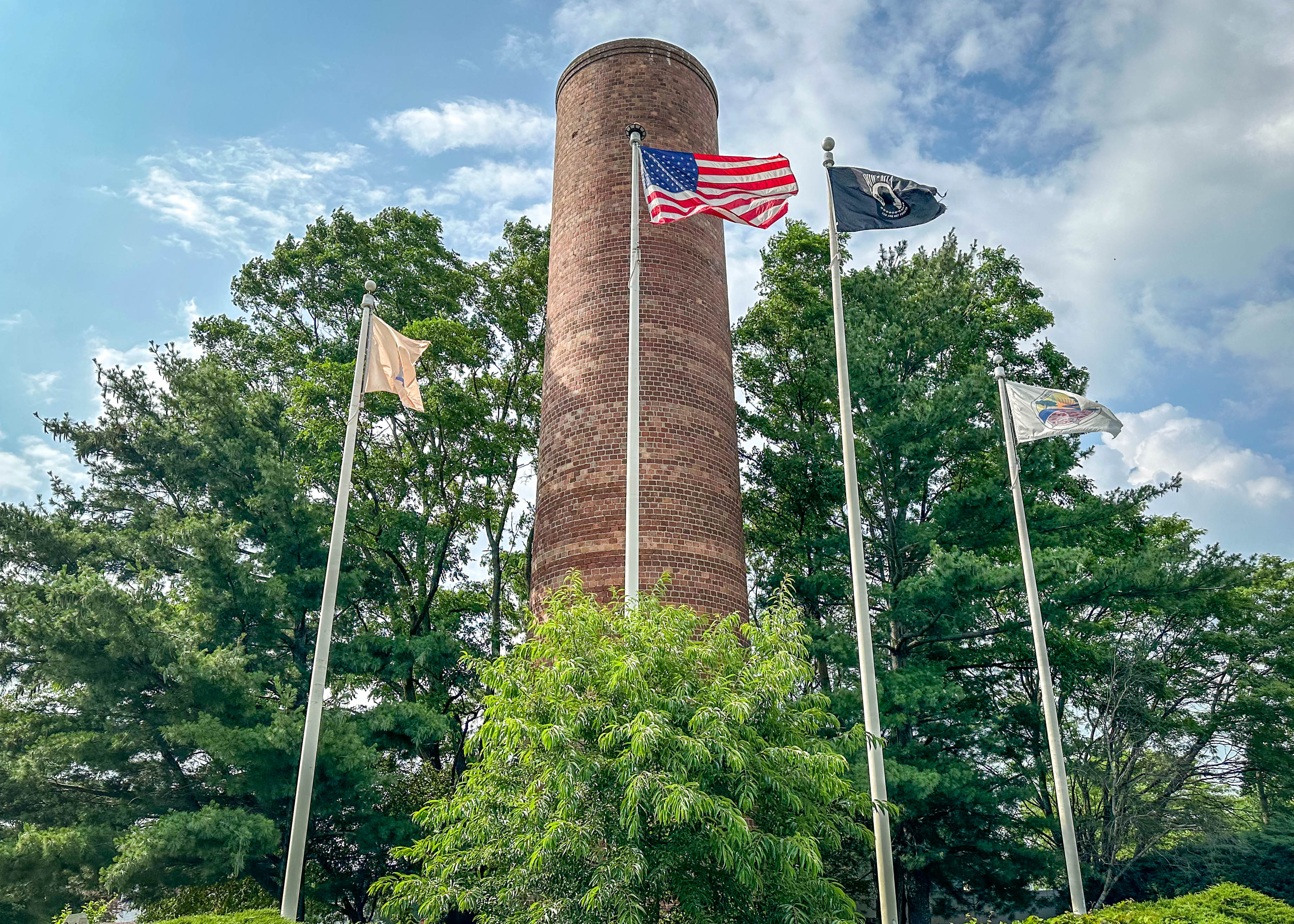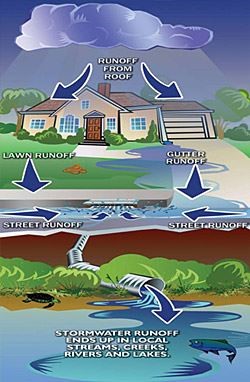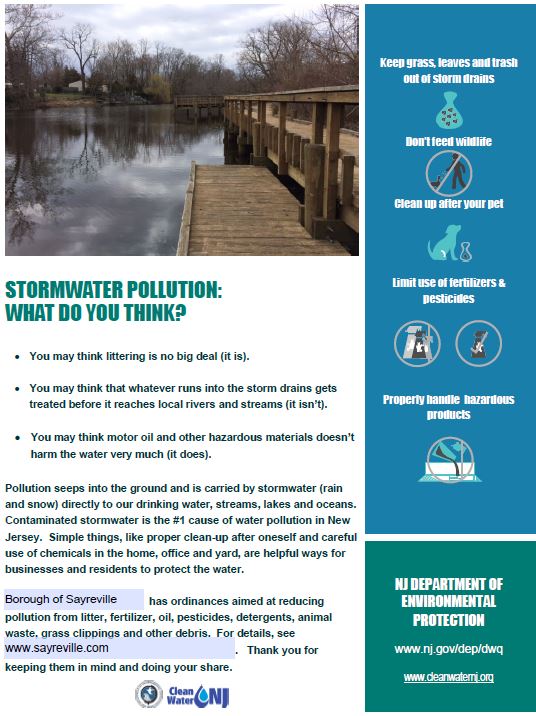Stormwater Management
.jpg)
What is Stormwater?
Stormwater is water from rain or melting snow that doesn't soak into the ground but runs off into waterways. The official definition of stormwater under the N.J.A.C. 7:14A rules is as follows: '
Stormwater' means water resulting from precipitation(including rain and snow) that runs off the land's surface, is transmitted to the subsurface, or is captured by separate storm sewers or other sewage or drainage facilities, or is conveyed by snow removal equipment.
How does it get polluted?
In undeveloped areas, precipitation typically soaks into the ground. When buildings, parking lots, roads and other hard surfaces are added to the landscape, the ground cannot absorb the water. Water from rain or snow storms, known as stormwater, instead flows over streets, parking lots and roofs collecting excess nutrients, trash (fast-food wrappers, cigarette butts, styrofoam cups, etc.), toxins, and pollutants (gas, motor oil, antifreeze, fertilizers, pesticides and pet droppings) before entering into a water body or storm drain.
Because stormwater flows over hard surfaces directly into water bodies or storm drains there is no opportunity for soil and plants or a water treatment facility to filter out pollutants. Stormwater runoff is often worsened by human activities, and can contain nitrogen and phosphorus pollutants from fertilizers, pet and yard waste.
How can you help?
Your everyday activities can affect water quality. Help reduce the amount of pollution that flows into our waterways by following the tips here: https://dep.nj.gov/cleanwaternj/in-the-home/
Stormwater Pollution Documents
Municipal Stormwater Management Plan
Stormwater Pollution Prevention Plan
Private and Community Stormwater Requirements
